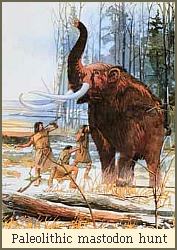 For the tens of thousands of years of the Würm glaciation, Paleolithic hunting tribes lived at the southern edge of the ice fields in Europe and Asia. About 10,000 years ago, as the last of the glaciers receded, some groups chose to follow the retreating ice northwards. While their cousins in the warmer regions to the south were smelting metal, these hardy tribes were knapping flint. While the southerners were inventing agriculture, slavery, and the ziggurat, the northerners were hunting large game in the chilly grasslands and forests of Central Asia and Northern Europe.
For the tens of thousands of years of the Würm glaciation, Paleolithic hunting tribes lived at the southern edge of the ice fields in Europe and Asia. About 10,000 years ago, as the last of the glaciers receded, some groups chose to follow the retreating ice northwards. While their cousins in the warmer regions to the south were smelting metal, these hardy tribes were knapping flint. While the southerners were inventing agriculture, slavery, and the ziggurat, the northerners were hunting large game in the chilly grasslands and forests of Central Asia and Northern Europe.One such group arose in the steppes of Central Asia, shifting to the Neolithic era by taming the horse and other livestock. These folk lived a nomadic existence, migrating in all directions during the last several millennia before the birth of Christ. For want of a better term, they are known as “Indo-Europeans”, in reference to the language group their descendents propagated throughout the western half of Eurasia.
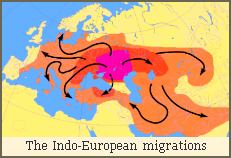 Some of the migrants turned south, invading, conquering, and taking up the ways of the city-states in the Indus Valley, Anatolia, and the Mediterranean basin. Other branches moved westwards and northwards, both in Europe and in Asia, displacing the indigenes and even opening up ice-free territory to humans for the first time.
Some of the migrants turned south, invading, conquering, and taking up the ways of the city-states in the Indus Valley, Anatolia, and the Mediterranean basin. Other branches moved westwards and northwards, both in Europe and in Asia, displacing the indigenes and even opening up ice-free territory to humans for the first time.Two major waves of Indo-Europeans migrated into Western and Northern Europe. Celtic tribes swept through Central Europe to take up residence in what is now Germany, France, the Low Countries, and the British Isles. Later Germanic tribes pressed on after the Celts, supplanting them in many places, moving northwards into Scandinavia and pushing the ancestors of the Lapps and the Finns further up the Baltic and into the Arctic.
The Celtic and Germanic tribes were closely related; some ethnologists consider them to be two branches of the same group. Their cultures were similar; they traded with one another, fought with one another, and presumably intermarried. But all across northern Europe the Germanic tribes nevertheless pushed the Celts further and further west, until their last remaining outposts were the British Isles. The Romans assisted the Germanic conquests by hiring Frankish tribes as mercenaries against the Celts in Gaul.
After the fall of the Roman Empire, the now-ascendant Germanic tribes of the Low Countries, Jutland, and northern Germany saw their opportunity. During the 5th and 6th centuries A.D., wave after wave of tiny boats carried these various German tribes across the cold North Sea to Britain. They massacred or drove out the Romanized and Christian Celts, pushing them west and north, and stayed on to till the soil and raise livestock.
Three major groups descended on Britain. The Jutes, originating in Jutland and Holstein, settled in what is now Kent. Meanwhile, the Angles came from northern Germany, particularly Schleswig, and settled in Norfolk and Suffolk. The Saxons migrated from the region between the Elbe and Weser valleys in northwest Germany to occupy south-central England and what eventually became Wessex.
But, of course, this account simplifies a chaotic mélange of related tribes who mixed and feuded with one another as well as with their Celtic neighbors.
As the country was subdued, the settlers established Anglo-Saxon kingdoms in the region of Britain south of Hadrian’s Wall and east of Offa’s Dyke. The Christian Celts were driven into Wales and Ireland, while the pagan groups speaking more or less mutually intelligible Low German dialects occupied what is now England.
As the Anglo-Saxons were converted to Christianity, the kingdoms of England became less chaotic and violent. With stable farming communities, a literate clergy, and a system of inherited kingship, Britain adopted the general model of contemporary European Christian culture.
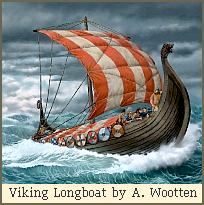 But to the north and east the Scandinavian tribes still seethed with pagan violence. As their numbers increased, there was little territory into which the surplus population could expand. The available arable or pastoral land was limited, and inland from the fjords were slopes of rocky scree, and then the glaciers.
But to the north and east the Scandinavian tribes still seethed with pagan violence. As their numbers increased, there was little territory into which the surplus population could expand. The available arable or pastoral land was limited, and inland from the fjords were slopes of rocky scree, and then the glaciers.So the tough and pugnacious younger sons took to the sea in their longboats, and the age of the Viking raiders began.
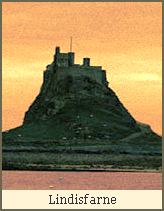 When the monastery at Lindisfarne in northern England was sacked by the Vikings in 793, it was recorded by the Northumbrian chronicler Alcuin as an event of unspeakable brutality. Yet two and a half centuries earlier it was Alcuin’s ancestors, the heathen Saxons, who had slaughtered and raped their way through the Christian communities of Britain. The Vikings were scarcely different; they were just late to the game.
When the monastery at Lindisfarne in northern England was sacked by the Vikings in 793, it was recorded by the Northumbrian chronicler Alcuin as an event of unspeakable brutality. Yet two and a half centuries earlier it was Alcuin’s ancestors, the heathen Saxons, who had slaughtered and raped their way through the Christian communities of Britain. The Vikings were scarcely different; they were just late to the game.Over the next two or three centuries the relentless Vikings raided their way across Europe. From Greenland to Algiers, from Labrador to the Volga, the Vikings made their presence felt. From Sweden they crossed the Baltic and rowed up the rivers into Russia. They ported their boats across to the Don and the Dnepr and the Volga, and sailed to the Black Sea and the farthest reaches of southeastern Europe. Rounding Gibraltar, Vikings raided the Mediterranean coasts of Iberia, Italy, and Muslim North Africa. The Vikings even had the rare distinction of taking Arabs as slaves.
 But, despite the conquest and slaughter, and unlike the Arabs (who were dedicated slave-traders), the Vikings did not generally take slaves during their raids. Perhaps the necessity of rapid movement by sea and the long passages through the cold northern waters discouraged the practice.
But, despite the conquest and slaughter, and unlike the Arabs (who were dedicated slave-traders), the Vikings did not generally take slaves during their raids. Perhaps the necessity of rapid movement by sea and the long passages through the cold northern waters discouraged the practice.The Vikings were otherwise dedicated traders, establishing fortified mercantile settlements wherever they went. The Norse Vikings, after plundering the many rich monastic targets in Ireland and northwestern Scotland, established trading centers which became Dublin, Limerick, and other major Irish cities. In their wake they left their blond-haired genes to supplement the black hair of the Celts.
What made the Vikings different from the Anglo-Saxons was their failure to impose their culture on the people they conquered. They were content to rule and prosper, adopting the language and customs of the people they defeated. The different branches of Viking invaders — the Rus, the Normans, the Danes in England, the Norse in Scotland and Ireland — became, after two or three generations, indistinguishable from the folk they conquered.
When Danish Vikings invaded and occupied large sections of England, the result was to cement the unity of the Anglo-Saxons against them. The English accepted the Danelaw in northeastern England. They paid the Danegeld; however, over the next century the English gradually incorporated the Danes and merged with them.
Their two cultures and languages were similar; hundreds of Old English words were so close to Old Norse that Danish versions supplanted the English ones. When the heathen Vikings converted to Christianity, there remained little to distinguish them from the English. By the time the Danish king Canute became king of England in 1017, the Danelaw and England had become a single culture.
In 1066, England was conquered by a different group of Northmen, from across the English channel in France.
These Normans were descendents of the Vikings who had raided and plundered in northern France. In the process of settling there, like Vikings all across Europe, they had forgotten their own language and culture and had taken on that of the people they conquered. Consequently, when the Normans abolished the Anglo-Saxon aristocracy in England and established their own legal system, they were importing a variant of ancestral Roman law.
Like other Mediterranean cultures, Rome had possessed political and legal structures whose lineage could be traced all the way back to the earliest city-states of Mesopotamia. For thousands of years the polities of the region had been centralized agricultural city-states, with rigid hierarchical structures and elaborately bureaucratized administration.
Conversion to Christianity did not change this ancient underlying worldview. Thus, God granted authority to the sovereign, who in turn dispensed justice and mercy to his subjects. Any rights the common people possessed were passed on to (or withheld from) them by the sovereign. This was the natural order of the world, and had been so for time out of mind.
I call this southern system of governance the “Pharaonic model”. It widely diverged from and was in conflict with the ways of the Normans’ English vassals. Their northern practice was represented by the yeomanry, the society of free-born petty landholders, who governed themselves by time-honored Anglo-Saxon custom.
This is not to say that the Anglo-Saxons had no hierarchy. However, it was a shallower and more fluid system than its Pharaonic counterpart. Anglo-Saxon governance was based on the prowess and virtue of those who were deemed noble, and instead of a Pharaoh there was a Cyning, a King, who represented his folk as their exemplar, rather than as their ruler.
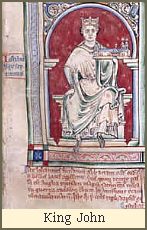 A yeoman’s rights were granted directly to him by God and could not be revoked by his sovereign. The Normans, in order to rule their new lands successfully, were required to recognize the “ancient liberties” of their Anglo-Saxon subjects. When his rebellious barons compelled the Norman King John to sign the Magna Carta in 1215, they were simply retaking their ancient liberties. The customs of the men of the North thus survived despite the Normans and became the English Common Law.
A yeoman’s rights were granted directly to him by God and could not be revoked by his sovereign. The Normans, in order to rule their new lands successfully, were required to recognize the “ancient liberties” of their Anglo-Saxon subjects. When his rebellious barons compelled the Norman King John to sign the Magna Carta in 1215, they were simply retaking their ancient liberties. The customs of the men of the North thus survived despite the Normans and became the English Common Law.Over the next four centuries the Common Law was elaborated into the English Constitution, with its Parliament and system of justice. This, then, was the political model that the English settlers carried in their minds when they debarked into the mosquito-ridden swamps of Virginia in 1607.
English governance was transplanted successfully to North America, but the character of the new land was not solely English. The landless younger sons of the gentry, the fugitives and criminals, the religious refugees, and the political outcasts who initially came to America were drawn from the most adventurous and entrepreneurial of the Anglo-Saxon and Danish bloodlines.
 These, in turn, were soon supplemented by massive numbers of Celts, first the Scots-Irish, driven by poverty and political maginalization. They pushed beyond the English settlers into the Appalachian highlands. After the Revolution, they in their turn were supplemented by waves of surplus Irish. Near where I live in Virginia, there was a large Welsh community, drawn here by geography: the ample deposits of slate created a demand for their well-known quarrying expertise.
These, in turn, were soon supplemented by massive numbers of Celts, first the Scots-Irish, driven by poverty and political maginalization. They pushed beyond the English settlers into the Appalachian highlands. After the Revolution, they in their turn were supplemented by waves of surplus Irish. Near where I live in Virginia, there was a large Welsh community, drawn here by geography: the ample deposits of slate created a demand for their well-known quarrying expertise.With a tradition of fierce independence and a martial spirit, the Celts were scarcely governable except on their own terms. Combined with the yeoman small-holders from the English tradition, they formed the basis of what is now “redneck” culture, and were the backbone of the American military in all our wars.
And this was not only true in the United States — the Scots and the Irish outnumbered the English throughout the British Empire. Wherever the soldiers, sailors, and merchants of the British Isles went, the Celts were over-represented.
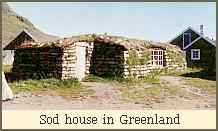 North America received further transfusions of northern European blood throughout the 18th and 19th centuries. The Dutch and the Germans were already well-represented in the original colonies. In the later 19th century Swedes and Norwegians spread across the northern plains of the United States and Canada, bringing with them an ability to withstand the harsh winters and an additional dose of the spirit of the North. The same folk who settled Greenland and Iceland came centuries later to homestead the frozen lake country of Minnesota and North Dakota.
North America received further transfusions of northern European blood throughout the 18th and 19th centuries. The Dutch and the Germans were already well-represented in the original colonies. In the later 19th century Swedes and Norwegians spread across the northern plains of the United States and Canada, bringing with them an ability to withstand the harsh winters and an additional dose of the spirit of the North. The same folk who settled Greenland and Iceland came centuries later to homestead the frozen lake country of Minnesota and North Dakota.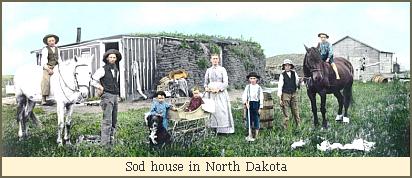
This, then, is the complex American character, which is the largest facet of what is now known as the Anglosphere. But it is no more English than it is Irish or Scottish or Danish or Welsh. It is the character of the Men of the North, and is best represented by the Minutemen, the freeborn citizens who took up arms in 1776 to retake their ancient liberties.
What was originally a racial characteristic had long become a cultural one. It remains open to anyone who cares to accept the rules and join the game. After all, Thomas Sowell has shown that the descendents of African slaves adopted Southern redneck culture, and not just its positive aspects. Prior to the Multicultural Age the main attraction of our country was that anyone who came here, obeyed the law, and took the oath became an American.
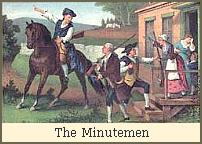 The Pharaonic model was neither understood nor welcomed here. We are the descendents of those Paleolithic hunters, and when the Minutemen rose up in self-defense, they were, in effect, confronting another mastodon with their flint-tipped spears. They were a voluntary and self-organized group, taking collective action by common consent to serve a common purpose.
The Pharaonic model was neither understood nor welcomed here. We are the descendents of those Paleolithic hunters, and when the Minutemen rose up in self-defense, they were, in effect, confronting another mastodon with their flint-tipped spears. They were a voluntary and self-organized group, taking collective action by common consent to serve a common purpose.We are not so many generations removed from the Men of the North; their spirit can still be revived. The welfare state is only a recent graft onto the tree of Liberty. It is as ephemeral as was the Norman yoke on the shoulders of English yeomen.
The Men of the North faced lethal reality with nothing more than their courage, their wits, and a willingness to co-operate with one another. We will need to do the same again.
A new mastodon is looming in the glacial mist. We can only hope that the art of knapping flint is not completely forgotten.

This essay was inspired by a comment from Archonix on one of Dymphna’s posts:
Rather than Europe in general, America more resembles pre-Norman England and Scandinavia — especially… Denmark. Funny, that. The Nordic legal system rested first on the primacy of the individual’s rights and responsibilities and went from there. And even post-Norman England retained most of that individualism, despite the imposition of Frankish bureaucracy — i.e. the Domesday Book. Because those Normans, as you may know, were originally from somewhere around southern Sweden or Norway.
In trying to define Western Civilization, I have often asked the question, “Who are we?” This is part of the answer.
When we Americans look at Denmark — and the response of the Danes to the aggressive provocation of the Mohammed Cartoon Crisis — we are looking in a mirror. We would be well-advised to emulate our Viking cousins when our own turn comes.
Denmark matters.

35 comments:
Baron - Have you ever thought of writing up what the future would be like if Islamists were in control (for those who think it wouldn't really affect them)? After the art, music, dance and architecture was swept away and non-Muslims were enslaved, how would trade and agriculture continue? How would technology as we now know it continue? Plenty of examples but all in countries with no European population of any account.
This is one of the clearest, and most concise views of Western roots that I've ever read, and I've bookmarked it. (Except I thought the Vikings did trade in slaves, but will look it up again)
Thankyou. And you're right. Denmark matters.
Hey, I'd second Jude, if it's something you' be interested in doing.
Will go back to lurking, now.
FrauBudgie --
The Vikings did trade in slaves, but only in a minor way. I was contrasting them with the Arabs, who engaged massively in the slave trade, and still do, though without acknowledging it.
The Vikings also kept some slaves in their home territories. They were called "thralls".
Sorry I can't give links -- I was drawing on decades of reading, and was too lazy to google all the sources!
Hence being in someone's thrall.
An excellent piece, but they they always are, and I'm not just saying that because my name was mentioned. I was hooked from the start. Thanks for the props, Baron, I appreciate it. I was going to go for false modesty but I figure if you find inspiration in what I write, then there it is.
Incidentally have you ever thought about collecting your thoughts in to a dead-tree edition? I know a site on the net that does Print on Demand without any sign-up fees, might be worth thinking about...
Archonix, I'm flattered. No, I hadn't considered it. But, if I don't find a job soon (I'm unemployed right now), I might have to look into it...
The disadvantage is that I wouldn't be able to indulge my hobby of lavish illustration in a book. Right now I steal whatever I want from wherever I find it to make my images, without giving a fig about copyright (though I link to & attribute identifiable original work, and I try to use public domain where I can). All that would change in a real publication.
Lulu.com has a system for people to collaborate on works, so I imagine you'd be able to get someone who could run you a few illustrations. Maybe. I can't say for certain because I haven't looked in to it for a while, so I don't know where they're up to with that technology right now.
History, especially the origins of nations and societies, has always been an interest of mine. And seeing someone tie various wide-ranged things together, like you have, into a salient point always gets my respect and admiration. Thanks for better filling in my history knowledge.
It also helps me understand better why the Catholic/Protestant rift made the line that it did. That has been explained to me in ethnic terms before (Latin vs. Germanic), but it never jibed with me that blood determined who was one or the other - there were way too many exceptions for that rule to work in my mind - I always thought it had to be more with ideas. The Yeoman/Pharonic thing piece fits the hole a bit better.
Thoroughly enjoyable read!
Thanks for the excellent essay, Baron. It reminds me it's time to do more to confront those Canucks who want to mold a specifically northern myth for this nation, but with anti-American features!
When I was reading this, I was also reminded of Paul Belien's How Flanders Helped Shape Freedom in America. Another thread in the story?
Outstanding write up. I read "The Vikings and Their Origins: Scandinavia in the First Millenium" By D.M. Wilson last year and was just amazed and spellbound.
And regarding writing up something about how the world would be under Islam, I have a recommdation:
Hatred of the Angels
It is an on line book, broken down by chapter.
It also will keep you spellbound, but I have to admit also depressed and horrified.
Papa Ray
West Texas
USA
Baron—This history seems somewhat anti-Mediterranean. Rome and Greece were not really part of a millenia-old "Pharaonic" (Oriental Despotic?) political tradition as your article implies. Rather the Roman Empire took on Pharaonic characteristics in its decrepit old age. In their heyday, Roman and Greek cultures were based on independent, republican, albeit slaveholding, city-states, utterly different from the Oriental or Egyptian empires, and developed without any reference to Middle Eastern models as far as I am aware. (What are "centralized...city-states" anyway?) My impression is that even the Roman Empire was—at first—remarkably unbureaucratic in its organization, ruled directly by a handful of men and preserving a great deal of local autonomy.
Your description of an Anglo-Saxon society governed by nobles relying on personal prowess sounds rather like the image I have of Homeric Greece, with Odysseus as Cyning.
One shouldn't forget about the indispensable contribution of Classical culture to the West while paying homage to the Northerners.
Mr. Spog,
I didn't forget the classical cultures; in fact, I had a piece of text about them that was very similar to what you said here. Unfortunately, to limit the post length, I had to leave it out.
I'm glad you brought it up here. You're quite right: the Romans, and particularly the Greeks, brought their vigorous and independent Indo-European cultures to the southern reaches (as the Aryans did to India). But their Pharaonic neighbors eventually corrupted the Romans and turned the Republic into a bloated despotism.
The Jews were different; somehow they avoided the disease. Maybe it was their staunch opposition to all things Egyptian (see Ezekiel on that topic), and then the diaspora.
That's an interesting point about the Jews.
I've been thinking about this again and I've realised something that might explain why I'm more optimistic than most about the situation on the continent. It's all down to the various people-groupings in these isles that Baron touched on, but didn't go in to too much detail with. Due to the various invasions over the years, there are some pretty distinc demarcations between north and south, east and west that have an effect right down to the genetic level. The most obvious one in england is a line that runs from the bottom end of offa's dyke up to somewhere south of York. Below this line people tend to be more francophile, more pessimistic and less trusting. North of the line people have less guile, are more emotional and tend to be more positive and, as our southern neighbours described us, crude and rude. I suspect we're also more robust and industrious, which means it's no accident that the first railways ran from manchester to liverpool, and the "dark satanic mills" - as them southern softies have it - sprouted like mushrooms all along what is now the M62 corridor. It's just a shame so many of us have been convinced to vote labour...
A great piece - in my PhD on legal philosophy (specifically re copyright)I divide concepts of law into "democratic" and "hierarchic" systems and trace their origins, essentially this is the same distinction as your yeoman vs pharaonate cultural distinction.
From what I've read on anthropology (eg "Guns Germs & Steel", it seems as if the democratic/yeoman approach seems to be the common starting point of humanity, primitive human hunter-gatherer societies operating in small groups always seem to take this approach, but it's normally gradually replaced by the hierarchic/pharaonate concept as societies grow larger and more complex. North-west Europe was unusual in the extent to which Yeoman culture largely survived the development of large chiefdoms, especially among the Germanic peoples, but Pharaonate culture always tends to make inroads into surviving Yeoman cultures*. I think the reverse - successfully exporting Yeoman/democratic concepts of liberty into developed Pharaonate cultures - is far harder. I'm not sure if there are any examples, modern India might show some promise but it's too early to tell. Generally, Pharaonate countries are happy to accept western concepts like Marxism and 'positive' Human Rights that actually serve to strengthen Pharaonate systems, but not the Yeoman concept of individual liberty as freedom from State power.
*Eg the Roman Republic's turn towards tyranny in the last century BC, the reception of Roman law into 15th century Germany, and the current reception of Roman law via the EU into the British Isles.
archonix:
"It's just a shame so many of us have been convinced to vote labour."
(I'm a Brit, living in London) - I think the Labour-voting north of England is at least partly a legacy effect. It's a bit like how American Southerners always voted Democrat, until recently. There's also a degree of self interest in that if you live on benefits or work for the State you might expect to do better with Labour, but I don't think that's enough to explain the disparity. There may eventually be a sudden flip-flop as happened in the USA, hopefully instigated by a renascent Conservative party and not the BNP or similar.
JCS - what a knucklehead!
I suppose if I lived in the US, I'd probably be a corpse somewhere in a back alley.
Nope, you'd have a job. And you could get an education if you were willing to work for it.
Jude, Frau, Matt --
The idea of what our culture would look like once Islam had taken over is an interesting one.
The problem I've always had in imagining it is this: Islam has never been able to function without something to plunder. The early Arab conquests expanded rapidly by absorbing the wealth of the peoples they conquered. The Ottomans did the same, looting Byzantium and points west to fund their empire.
The Arabs are performing the functional equivalent now by controlling the price of oil. They are looting the West without the inconvenience of raids and violence.
Once the goose is dead and the golden eggs are gone, what will Islam be? Who will buy the oil?
Yes, there is unemployment. But I personally have never been unemployed any longer then I wanted to be.
If a person is unable to work because of illness or accident, they should recieve help.
But the able bodied need to work and contribute-no free rides.
It gives the sense of self worth, self discipline, and independence that are necessary for a free society.
I've seen first hand what the long term welfare society can do. It is soul destroying.
Society needs to penalize, not reward, unproductive behavior just like Mother Nature does. You don't work, you don't eat is highly motivating!
There are, I believe, as many, if not more, homeless people in the UK than there are in most states in the US.
I suspect there's a miscommunication of terminology here. There's the safety net, which every society has in one form or another, and there's the cradle-to-grave welfare societies that we have here. Denyt is as much as you like, but I've lived in sink estates riddled with scroungers living on the dole for their entire lives. Some of them are second or third generation social security recipients, and proud of this. I've lived amongst these people and I can tell you, to your face if you like, that this sort of "welfare" is exactly what the others here are talking about. Not the sort of welfare that saves people who fall over the edge or aren't physically able to work which, as has been previously pointed out, every society has (and there's no reason why it should come from the state either; in fact for most of history it's come from individuals), but the sort of entitlement mentality that says "I deserve this money" when they haven't done a damn thing to earn it.
How do you make ends meet? Easy. it's actually entirely possible to live on £30 a week, as long as you aren't too picky about your food and don't mind living in a single room. Now, having luxuries is a different matter. As a society we assume that everything should be ours by right, from computers to fancy food to fast cars and loose women. They're all available, but at a price. Is it a nice way to live? Not really. But it's a damn sight better than sucking at the government's tit for a living. When you're working, you have goals to aim for. You can see how much your time earns you, and how much more it can earn you if you just tweak it a bit. If you're on benefits just because you don't give a damn then you're always going to be stuck just on the poverty line. I've been poor. It ain't fun...
There are plenty of shitty jobs available that pay just enough to get you off benefit and in to the labour market. After that, all you need to do is move your way upward...
Though, having said all that, it's become a lot more difficult to do this because of the way the labour market is being eroded and fosilised by such wonderful ideas as the working time directive and the minimum wage.
"it's actually entirely possible to live on £30 a week"
Current UK 'income support' benefit is over £50 a week AIR, plus you get free housing and lots of other things paid for or cut price. It's a poor deal for the talented, and it's souk-destroying, but for the lazy and untalented it's an attractive alternative to hard work for low pay. And for the more motivated it leaves plenty of time for crime.
soul-destroying! Hm, Freudian slip? :)
JCS --
I had to delete your comment because of the F-bomb in it. As I have said before, the Common Room and other home-school blogs link here to further their older children's education. This post in particular may well get linked.
I ask you all to restrain your language. I like to keep this blog PG-13. There's no reason not to make the same arguments whilst remaining civil and temperate.
If you can't convince people with the force of your rhetoric, foul language will not help you make your case.
The more traditional venues of education (after high school) are unavailable because I'm too old.
Too bad. That is one good thing about the US, you can ALWAYS go back to school, at any age if you do the work (and are willing to be a starving student again)! One of my friends just got her Masters of Library Science at age 51, and now she is started on an entirely new career.
I worked with one gentleman who was getting his PHD in Biology at age 70, and who would backpack into the woods and do lichen collection in wilderness areas for his graduate work.
Finland might want to reconsider thier approach, talent and interest don't stop over age 30.
Perhaps in your brilliant mind Baron, you can connect these things in a meningfull way.
I can fill this on in a little. Scandanavian cultures can be seen as the ultimate in democratic rule because of the emphasis they placed on individual responsiblity. A man was first responsible for his family, his home and his land. Then he was resonsible for defending his enighbours, who were in terun responsible for defending him. In order to coordijnate this they would elect a wittan, which is literally a group of "wise ones". (election in this case meaning they would choose, through whichever means they thought best, rather than have a ballot). The wittan was like a ruling council and a court combined and would choose one of its number to be a nominal leader when the need for such a leader arose. This leader would then take part in a larger, regional wittan, taking the needs of his village to repreentatives of all the loca villages. This in turn would present a leader to the larger group, and so on, until it reached the point where a king was chosen. A king could rule anything from a single village to an entire country. IN this way the needs of one homestead could be presented to the entire kingdom. It's a very efficient system, requiring very little actual rule from the top and givine the most people the most freedom.
A wittan used to meet in england until well in to the 15th century, but it had become mostly symbolic by that time, having been rendered powerless by the star court of the king.
Unfortunately, such an education is unavailable if you don't have work experience in that field, and you can't get that experience unless you have the education.
JCS, those problems regarding education are the fault of socialist policies like the working time directive. These regulations about working hours, pay and conditiosn are all good and well but, coupled with a constant devaulation of the educational system - to the point that it's difficult to find out whether a student is bad - and the reduction of vocational education and apprenticships in favour of academia and the dreaded media studies, it's no wonder you'd have a hard time getting a job. My dad liked to remark that he would never have been able to get in to his first job in todays' market. He was a chef, earning a pittance. See, he didn't have any decent education. He failed most of his o levels (I think he managed to get two) but that didn't matter; he just pottered down to london on his bike and moved in to a single room bedsit with a friend, then went on to get an apprenticeship in a hotel kitchen, where he was taught what he needed to know. Nowadays he'd have to spend two or more years doing a BTEC or HND just to be considered for cleaning the dishes, because of the myriad of regulations government the requirements for employment and training, with the state taking over the role traditionally held by the employer as a trainer.
For Heaven's sake - just becasue the Norsemen made positive contributions to our culture, lets not go whitewashing them and get all misty about what nice guys they msut have been. The Viking raiders were extraordinarily brutal, even by the brutal standards of their time. Their victims were not Norman nobles, but innocent coastal dwellers - mostly peasants, merchants, tradesmen and monks. And though they didn't internationally trade in slaves, they most certainly took them in great numbers on their raids. There is evidence byond "victor's history" to show this, including Viking chiefs buried with the bodies of hundreds of ritually slain captives - men, women and children - to accompany the warrior to Valhalla. There is a great page or two in the first chapter of Simon Schama's "History of Britain" on this topic, but I'm too lazy to retype it.
jcs-
Have you considered being an exchange student, and getting your education/experience in a more flexible system?
There are other options then Finland, particularly if you speak English.
A really fun read Baron!
Regarding "who would buy the oil?"...wouldn't that be a nice problem to solve? I'm sure the middle east nations would simply become wards of the UN or EU...and everyone would blame the US and Israel for their problems.
wow. I just realized this post is originally from july...wonder why it showed up in Google Reader on Dec 20th....??
Mike,
It's because I had to change the website link for Anthony Wootten's painting of the Viking longboat (at his request). I republished the post, which must have triggered the RSS syndication feed, making it show up in current lists!
Baron - Have you ever thought of writing up what the future would be like if liberals and anti-Muslims and pro-Zionists were in control (for those who think it wouldn't really affect them)? After the art, music, dance and architecture was swept away and non-PCs were enslaved, how would trade and agriculture continue? How would technology as we now know it continue? Plenty of examples but all in countries with no European population of any account.
For now.
How can YOU have your Israels if you dare not claim equal rights with the Jewish people to discriminate against the other?
How can you give the Jewish people the right to discriminate against US, yet refuse to discriminate against them?
It's the same answer to both questions. You are slaves. That's why you are distracted by anti-Islamic politics from pro-European politics.
I LOVE IT!
Tory Black Fist. Yes, I remember this weird fellow. He came to comment at my blog, but obviously he thought his own comments were so ridiculous and useless that he all along the way
expected them to be deleted, and was surprised when they weren't.
New comments are not allowed.